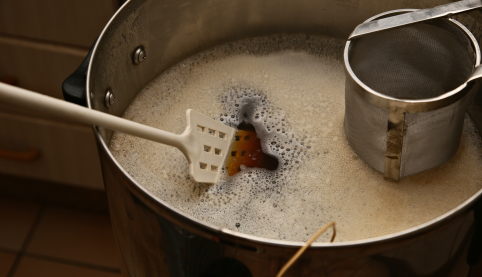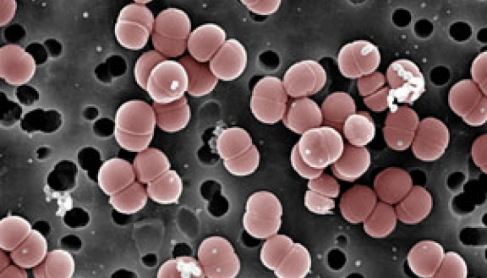The challenges facing homebrewers!
January 11th, 2023
Paule Gosselin is an enthusiastic literature teacher who is passionate about the art of beer brewing. She loves learning about the ingredients and artisanal production of different beers and enjoys sharing her knowledge and love for excellent brewing products through writing. She is always keeping an eye out for new trends in the world of beer.
I recently spoke with Yan Smith, brewer at the microbrewery Le Bien, le Malt in Rimouski. I met him several years ago, when he was taking his first steps in the world of home brewing. He has been a professional brewer for more than 6 years now and I thought his experience could inspire you.
Q: Hi Yan! What kind of equipment do you want to buy when you are a home brewer, and what should you buy to avoid beginner mistakes?
I think that initially, basic equipment that is not too expensive is ideal, as it is important to determine if you are going to enjoy brewing beer, how often, etc. Many people immediately spend on equipment that is not too expensive. A lot of people spend money on fairly expensive systems right away, only to sell their equipment soon after because it wasn’t their cup of tea. If after a few brews, the motivation and passion remain, then you can consider purchasing more professional equipment.
Initially, you can make do with a large pot to boil the wort, a large cooler that you can buy already modified or modify yourself to serve as a mash tun, and finally a glass carboy or a plastic pail for the fermentation. Then, if you really get into it, you can turn to more professional systems which are always more expensive.
Q: What are the really essential technical skills required for the very first home brew?
Personally, I would recommend anyone who wants to get into this wonderful hobby to read the entire book, or at least most of the book How To Brew by John Palmer. In my opinion, it is a must. You should also do a lot of research on home brewing forums and/or Facebook pages. Otherwise, the most important thing in my opinion is to have good equipment cleaning and sanitation practices. It sounds like nothing, but without it, you can quickly run into contamination problems and therefore have to throw away the fruits of your labour.
Q: Where do you source your raw materials as a home brewer?
Ideally, we check if there is a store specialized in home brewing in our area so that we can go there to buy our ingredients and equipment and talk to the salespeople to discuss the subject and the products. Otherwise, there are now a multitude of sites that sell a wide variety of products online and deliver to your home. As a last resort, you can ask your local microbrewery to help you out, but I’m a little less in favour of that option since they usually keep a pretty specific amount of malts/hops/yeast based on their needs.
Q: Where do we get inspiration for our first recipes to brew?
Initially, the easiest way to start is obviously to execute established recipes that can be found on the internet or in magazines. It is very important to taste the different malts we use and to smell the hops as well as the yeast. The more you are in contact with the different ingredients and the more you learn about their particularities, the easier it is to design your own recipes later on. You quickly realize that there is virtually no limit to what you can devise as a recipe.
Q: What good bottling and storage tips would you give to a home brewer?
As far as bottling goes, again, you have to be extra careful about cleaning and sanitizing bottles, tubing, siphons, etc. The greatest danger at this stage is also oxidation, so avoid going too fast and minimize contact with oxygen. You also need to know how much sugar and yeast (if any) to add for refermentation/carbonation in the bottle. Patience is also an important element in achieving the best possible end result, as it often takes two weeks or more to complete the fermentation. Bottles should be at room temperature for this step. If you have the option of having kegs instead of bottles, it greatly simplifies the work and the risks of oxidation, as well as a much shorter waiting time before the product is ready.
Q: Feel free to mention any good tips you wish you had when you were first starting out in home brewing
In the end, my advice is to always be stricter on cleaning and sanitizing procedures, don’t use tap water for brewing, otherwise treat it accordingly. Favour osmosed, distilled or demineralized water. Be able to measure the pH at different stages of brewing. Read the book How To Brew by John Palmer.
Happy home brewing to all!







